What are AIB Standards?
AIB International, formerly known as the “American Institute of Baking,” is an organization focused on food production safety, hygiene, and quality standards. The goal of AIB is to ensure food production facilities comply with food safety and hygiene standards.
AIB Standards define a set of criteria that describe the expectations for cleanliness, hygiene, maintenance, and food safety practices of food production facilities, warehouses, and distribution centers. These standards provide a framework for facilities to maintain and continually improve their food safety practices and programs. AIB standards are designed to verify the compliance of food facilities with internationally recognized best practices and regulations.
AIB conducts regular inspections and evaluations to determine compliance with these standards. These inspections involve a comprehensive review to determine if facilities are adhering to food safety standards. If a facility is not operating in accordance with AIB standards, it must develop a plan to make the necessary corrections. Once compliance is achieved, AIB certifies this with a certificate.
The Importance of AIB
Formerly known as the American Institute of Baking, AIB International plays a significant role in the certification process for various food facilities worldwide.
Standard Setting: AIB International develops and maintains comprehensive standards that encompass various aspects of food safety and hygiene. These standards are designed in line with globally accepted food safety protocols and regulations.
Education and Training: AIB offers a variety of training programs that educate businesses about best practices in food safety, hygiene, and sanitation. These programs provide professionals with the knowledge needed to uphold high food safety standards in their institutions.
Inspections and Reviews: A fundamental aspect of AIB’s role is conducting food safety inspections in food production facilities, storage areas, distribution centers, and other related facilities. These inspections are comprehensive evaluations that assess whether a facility’s practices, processes, and conditions adhere to AIB’s strict standards.
Certification: After a successful audit, and if the facility meets the required standards, AIB issues a certificate. This certificate is a seal of assurance indicating the facility operates according to AIB’s food safety standards and best practices.
Continuous Monitoring: Obtaining certification is not the end of AIB’s involvement. AIB emphasizes the necessity of continuous improvement and re-evaluates facilities at regular intervals to ensure ongoing compliance.
Feedback and Recommendations: After an audit, AIB provides detailed feedback to the audited facility. If areas of concern or non-compliance exist, AIB offers guidance and recommendations on addressing and rectifying these issues.
Resources: AIB offers a range of resources, from manuals to online tools, to assist businesses in maintaining and improving food safety standards. This ensures easy access to information about best practices.
AIB and the Logistics Industry
Food Transportation: Logistics plays a critical role in the transportation of food products. AIB offers trainings and inspections on how food products should be stored and transported according to food safety standards. This assists logistics companies in operating in line with international standards.
Warehouses and Distribution Centers: AIB conducts inspections to ensure food storage and distribution centers are hygienic and safe. These inspections assess if logistics sector warehouses and distribution centers adhere to food safety standards.
Risk Assessment: AIB can guide on evaluating potential food safety risks within logistics processes and determining what precautions should be taken to mitigate these risks.
Training and Resources: AIB provides training materials and resources on food safety for logistics companies. These resources provide insights on how transportation and storage processes can be optimized in terms of food safety.
International Standards: Numerous countries and regions globally have their own regulations concerning the transportation and storage of food products. In addition to these regulations, AIB is also well-versed in international standards, aiding logistics companies in understanding how to operate in different markets.
